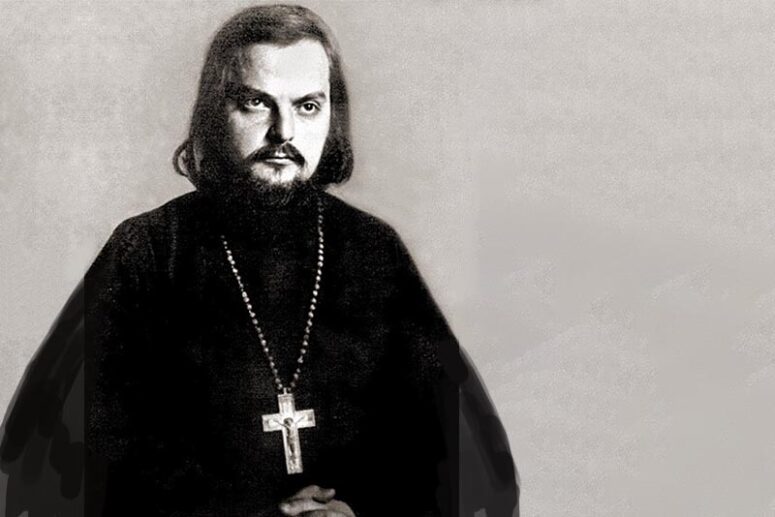
This piece presents the life of the Hieromartyr Sergiy Mechev, son of the Holy Venerable Alexis Mechev, presbyter of Moscow. Saint Sergiy has not been as widely venerated as his father Alexis. However, Alexis Mechev himself once said these prophetic words: “My son will surpass me in glory.” Throughout his life, Saint Sergiy Mechev was a good shepherd to his flock, a beloved head of a church parish, and also an outstanding and unwavering witness of Christ who remained steadfast in his faith, ultimately rising to the highest form of service to Him, the feat of martyrdom.
Life and service: before ordination
Sergiy Mechev was born on 17 September 1892. His father, Alexis Mechev, was a renowned elder and dean of the Church of Saint Nicholas in Klenniki at Maroseika in Moscow from 1893 to 1923.
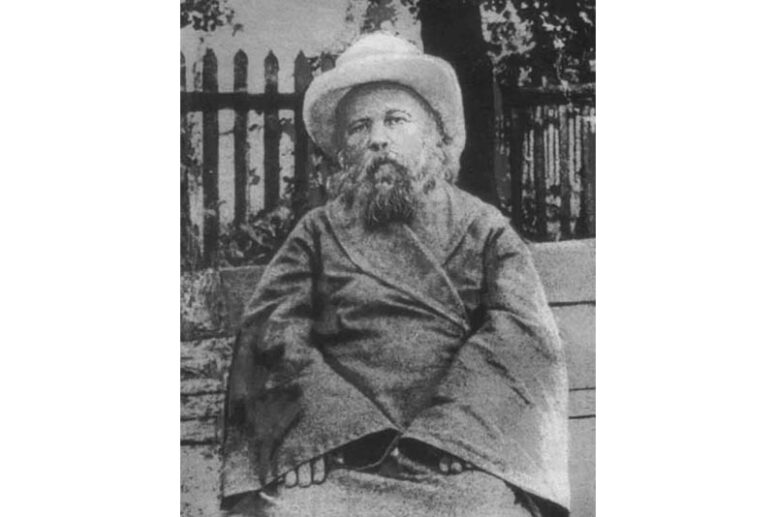
As a child, Sergiy gave great promise and was his father’s beloved son. He was a top student, graduating from the Moscow Men’s Gymnasium with a silver medal. As a student, he also helped his father at church as an altar servant. With a good musical talent and a beautiful tenor, he combined his altar duties with singing in the church choir.
After graduating from the gymnasium, Sergiy went on to study at the Faculty of Medicine of Moscow University before transferring to the Faculty of History and Philology, where he immersed himself in the study of ancient Russian literature and the history of the Russian Church.
When World War 1 broke out in 1914, Sergiy interrupted his studies to volunteer as a hospital nurse. As a volunteer, he spent most of his time caring for the wounded at the front line. Despite suspending his studies, he continued to study Church history and Russian literature independently.
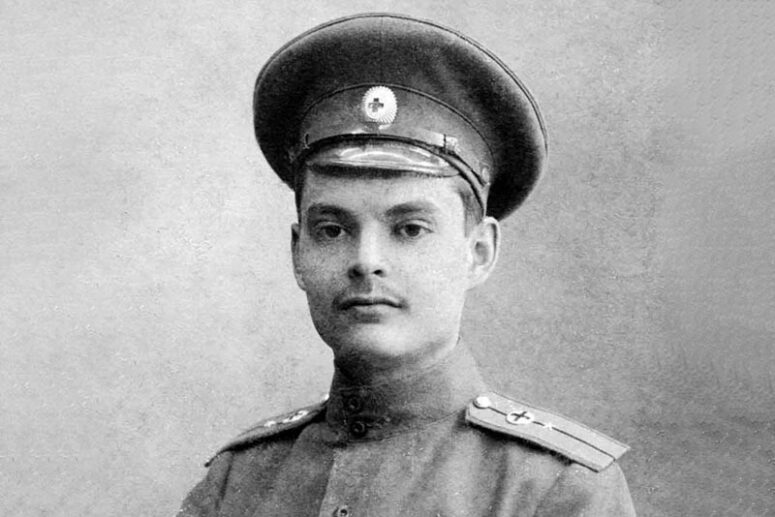
On his return to university in June 1916, he joined the student theological society of Saint John Chrysostom, which focused on reading the works of the Church Fathers and discussing religious themes.
His education, war experience and high moral standing brought him in 1917 to the Commission of the Russian Orthodox Church for Relationships with the civil administration. Moreover, at only 24 years of age, he participated in the All-Russian Church Council where he met Patriarch Tikhon.
In 1918, he married his wife Euphrosyne Shaforostova. They met during the war while they were both serving in a front-line military hospital. Father Alexis blessed their marriage and wished his son Sergiy to become a priest.
Sergiy took his ordination in the fall of 1918, as he was visiting Optina Pustyn Monastery. Before that, he sought the advice of Hieroschemamonk Anatoly (Potapov), for whom he had a deep respect and whom he had regarded as a kindred spirit ever since his arrival at Optima. On Lazarus Sunday in the fall of 1919, Sergiy Mechev was ordained as a deacon. Later that year, on the Great and Holy Thursday of 17 April, he was ordained as a priest at Danilovsky Monastery. He began his service thereafter at Moscow’s Church of Saint Nicholas of Myra at Maroseika in Klenniki, where he joined his father.
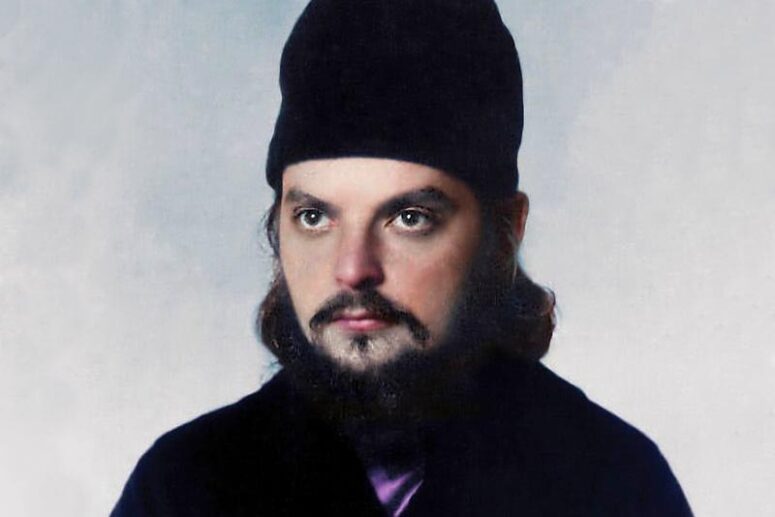
A spate of trials
In 1919, Patriarch Tikhon, a warm sympathiser of the father and son Mechevs, the Moscow presbyters, gave his blessing to the establishment of the Maroseika Parish brotherhood, a religious association grouped around Elder Alexis Mechev. From 1919 to 1923, church parish life at Maroseika was progressing. Elder Alexis was already a known religious leader, but his son Sergiy had also won recognition for his talented preaching and interpretation of the Gospel and the writings of the Holy Fathers.
They came to prominence by giving talks to parishioners after services, together with another priest, Sergiy Durygin. The young Sergiy Mechev commented on the teachings of the Holy Fathers on the spiritual life, the Church, sin, fear of God, conscience, reason and obedience.
Despite Elder Alexis’s abundant love for his son Sergiy, the beginning of their collaboration was marred by tensions, arising from Sergiy’s impatience and overzealousness typical of his young age. Sergiy questioned some of his father’s decisions at first, but with time, their differences subsided. The elder foresaw the future of his son, the greatness of his feat and his martyr’s death. He said: “My son Sergiy is like a beautiful flower. But he will soon wither away.”
But Elder Alexis was the first to depart. The Lord took his soul on 23 June 1923. Many Muscovites attended his funeral, including Patriarch Tikhon, recently released from captivity.
The Maroseika church community was bereaved by the loss, but there was already no question about who would succeed Elder Alexis. Elder Alexis’s son had already become an organic part of parish life, and his fitness for this role seemed obvious to all, but not to Sergiy. To him, this legacy was an impossible task appropriate for an elder with a great gift of prayer, foresight and love, but not for a young priest, no matter how talented he was. To lead a community with many intellectuals and people who expected their leader to know every movement of a person’s soul, as the latter Alexis Mechev did, seemed like an impossible task for Sergiy.
Soon after his father’s death, Father Sergiy was arrested for refusing to subordinate to the Renewalist Church, a creation of the Bolsheviks. Father Sergiy took it as a sign portending against his leadership of the Maroseika parish. Still in prison on the fortieth day of his father’s departure, he felt the unseen presence of Alexis Mechev and resolved to take his release on this day as a blessing for the leadership of the parish. But not seeing his freedom that day, Father Sergiy decided to refuse to lead the community.
He was released two days later. When he returned to the parish, he received a reminder: it was 2nd September, the feast of Saint Theodosius of Totma, one of the most beloved saints of Elder Alexis and Sergiy, and the birthday of his late mother. At that moment, Father Sergiy realised that he had the blessing to lead the parish.
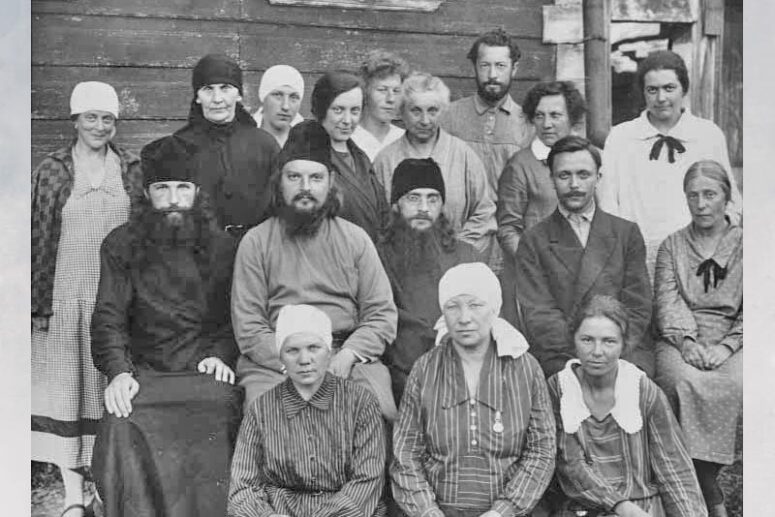
Parish Priest
He accepted his pastoral duties over his flock and fully dedicated himself to this service, hardly giving himself any time for rest. He conducted church services, heard confessions, preached and had conversations with individual believers. As he had feared, these duties were so exhausting that he once admitted to a spiritual daughter: “I will not save you, and I myself will perish with you.”
At the peak of his emotional burnout, he went to visit Elder Nectarius of Optima and ask for his blessing to resign.
After his return, Father Sergiy called a meeting of the whole parish in the church and addressed the flock with a speech that resembled a public confession in early Christian times. He admitted that he was directing his efforts to futile pursuits. He had too little time to meet those who genuinely needed it but spends too much time and effort on resolving petty conflicts and absurd disputes among his flock. In a nutshell, he was distraught at having to dedicate his efforts to “spiritual trifles”. This was leading to a situation when many in the parish, including himself, were unhappy with his leadership. He also told his flock about his journey to Elder Nectarius. Something unprecedented happened on his way. He could not complete his journey: the river crossing points were closed, and there were no horses. On his way to Kholmishe, where the elder lived, Father Sergiy spent a whole day in solitude. During that time, he understood he had no right to abandon his mission, but should persist with it no matter what.
That was Father Sergiy’s most important conclusion. With God’s help and incessant effort on his part, the parish grew into a close-knit family. According to Father Sergiy, it was a family “where prayer and repentance reigned.”
Every member could participate in prayer life as a reader, sacristan, choir singer or chanter. There were no clerical workers on staff, all support was provided by volunteers.
Father Sergiy also gave guidance to his flock on matters outside of the church, sometimes giving them reassurance and encouragement in their creative and academic pursuits. Furthermore, as the father of the church family, he also helped organised the pastimes of his flock, where requested.
Several holy martyrs, a bishop and about a dozen clergymen, and a professor of theology came out of the Maroseika parish while Father Sergiy was its leader. Many people who became his disciples had been blessed to do so by the Venerable Nectarius of Optima.
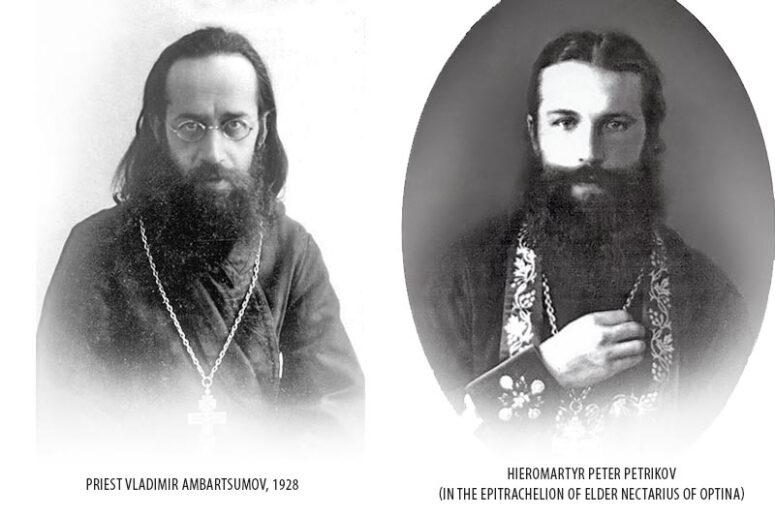
Persecution and departure
A decade after Father Sergiy’s ordination, in 1929, the situation of the Church and society was quickly going worse. Churches were being shut down, destroyed or handed over to the Renewalists, and the persecution of believers continued. From 1927, the clergy were obliged to mention the Soviet authorities during church prayer. He could not comply with this demand for reasons of conscience: how could he remember during church prayer those who not only did not believe but were also working hard for the destruction of the Church? Because of this attitude, the authorities considered Father Sergiy a sectarian, and his arrest was only a matter of time.
In subsequent years, up until his martyrdom in 1942, father Sergius and his famility experienced growing difficulties, affecting their everyday and prayer lives.
Excerpts from the police case file
Arrested in 1929, he was exiled to a Northern labour camp without his family
1932: his wife Euphrosyne was arrested and exiled to her husband with her four children.
1933: Repeat arrest of Priest Sergiy. He was tried and condemned to five years in a prison camp. His time together with his family was very short.
Hard physical work was not the hardest part of his sentence. During questioning, his interrogators sought to convince him that all his family had been shot. It is uncertain how having him believe that could have helped the investigation. Most likely, his interrogators were doing that out of cruelty.
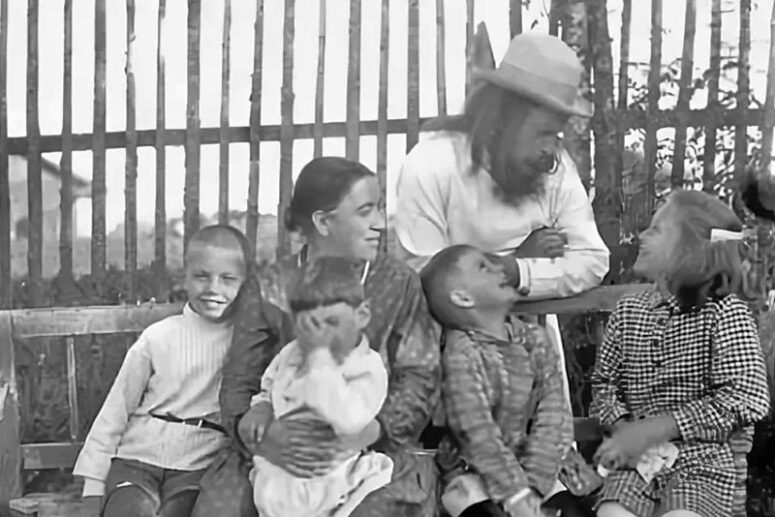
Throughout these years, Father Sergiy remained in correspondence with his spiritual children, despite all the difficulties and trials. He was also thinking about the future life of the Church under the new circumstances. In one of his writings, he advised: “Now is not the time to look for regular spiritual guidance. You will not find any, and even if you do, your success will not be lasting. Instead, look towards one another: concentrate on learning from each other, strengthening and reassuring one another. As the Gospel calls us, “Carry each other’s burdens, and in this way, you will fulfil the law of Christ.” (Galatians 6:2). Remember, you cannot completely do without God’s priests.”
Father Sergiy was released in 1937. He went home a year early as a reward for his excellent work performance. Sadly, his reunion with his family and spiritual children was short-lived.
The authorities had prohibited him to enter Moscow, precluding his return to Maroseika Parish. He resided illegally in the Moscow region, trying to rebuild parish life from there. He settled for finding an archpriest who would agree to ordain as priests some of his spiritual children. Finally, he found the willing person – Bishop Manuel Lemeshevsky.
He ordained four spiritual children of Father Sergiy. Sadly, Bishop Manuel had a controversial reputation, described by this common saying: “He is a strange archbishop: now he goes to prison, now he sends others there”. Arrested in 1939, he was made to testify against Father Sergiy.
When news of the bishop’s betrayal reached Father Sergiy, he moved to Rybinsk and continued to move from one town to another. Elizaveta Bulgalova, a Maroseika parishioner, remembers: “A blind nun called the Blessed Xenia lived in Rybinsk in those years, and she had the gift of prayer. Even archbishops would come to her for guidance. She could be contacted through a go-between, possibly her cell attendant, who would pass on questions and deliver answers by word of mouth. Father Sergiy asked her this question: “What should a priest do if a bishop has betrayed him?” The woman was confused. She did not want to pass on his question. But the nun asked her sternly: ‘Do you know whom you have refused? – He is a holy martyr. A future ascetic and recluse!”
Father Sergiy anticipated his ending and prayed only for this cup to be taken away from the parishioners and newly ordained priests. Following the example of the early church ascetic, he served 40 funeral prayer services for himself. At that point, his spiritual gifts became visible, which he considered, in his humility, to be signs of madness. During his last encounter with his close friend Archimandrite Boris Holchev, Father Sergiy said: “Father Boris, I am being consumed by madness. When someone comes to me, I can see what is on his heart.” “This is not madness, but the gift of vision,” answered the Archimandrite.
Archpriest Sergiy Mechev was arrested on 7 July 1941. He was convicted of running catacomb churches, promoting secret monasticism and active opposition to the authorities and sentenced to death. He accepted his martyrdom on 6 January 1942.
As he was being taken into custody, he promised his family to return. His wife did not know her husband’s fate. She waited for his return and kept his old clothes in a closet to the end. “But what will he wear when he comes back?” It was not until the 1950s that she was able to find out what had happened to Father Sergiy through informal contacts at the Ministry of Interior. Finally, on 29 December 1950, his close friend Archimandrite Boris served a funeral service for him in absentia. It is still not known where he was buried.
The Danish philosopher Soren Kierkegaard wrote that only those who tread the path of their teacher can be called followers. A follower will not walk in the footsteps of his teacher only to find shelter from adversity or to be guided by his teacher at every step of the way. Only when a disciple follows the same path as his teacher can he be called his true follower.
In this sense, Hieromartyr Sergiy can truly be called a disciple of the Lord. He continued to lead his parish in the face of many hardships and his infirmities. “Whoever wants to be my disciple must deny themselves and take up their cross and follow me.” (Matthew 16:24). He took up the parish as his cross, carried it to the end and never let go of it under any circumstances. Until he finally drank the cup Jesus drank, and was baptised with the baptism that He was baptised with (Matthew 20:22).
Are we prepared to do the same, or know of anyone who is? Likely not. All we can do for now is continue to pray to God and invoke the name of his true follower Hieromartyr Sergiy, pleading for at least a drop of his faith.
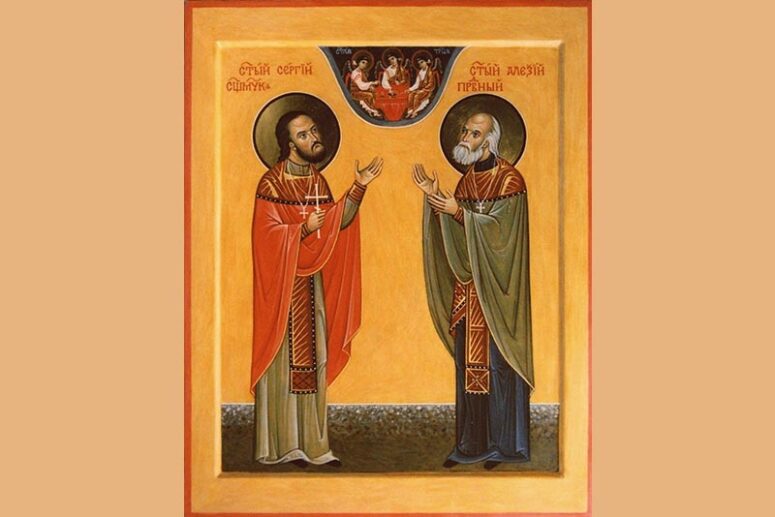
[1] The Holy Venerable Nectarius of Optima shared a similar observation with his spiritual daughter: “Did you know Father Alexis? He was known to all of Moscow, while only half of the city knew Father Sergiy. But he will surpass the glory of his father.”
[2] The venerable Anatoly of Optima Jr.

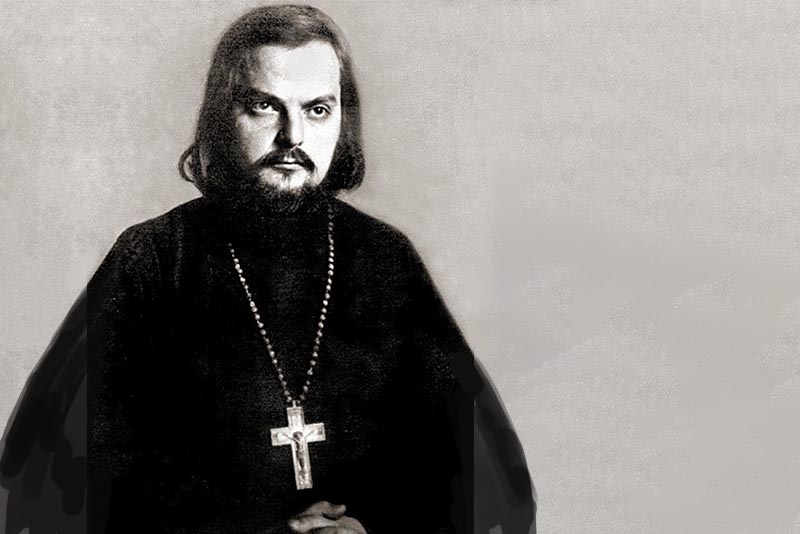


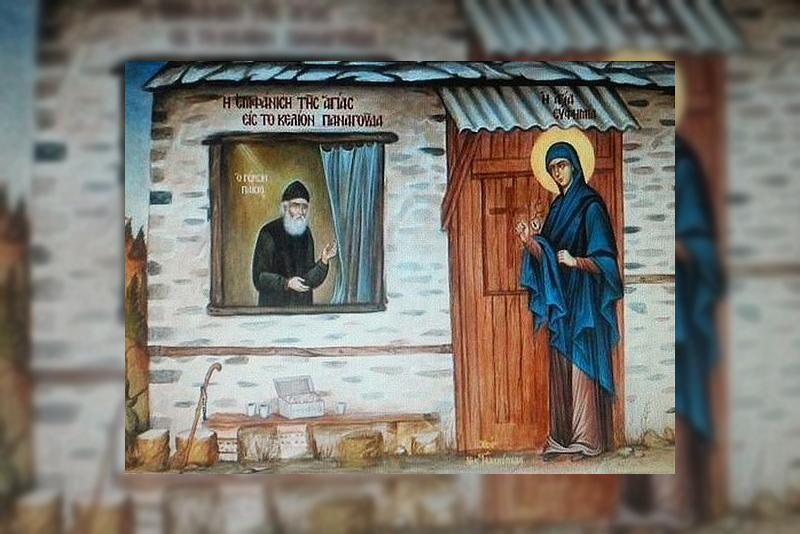
Thank you for this and all your sending of articles – They give inspiration.